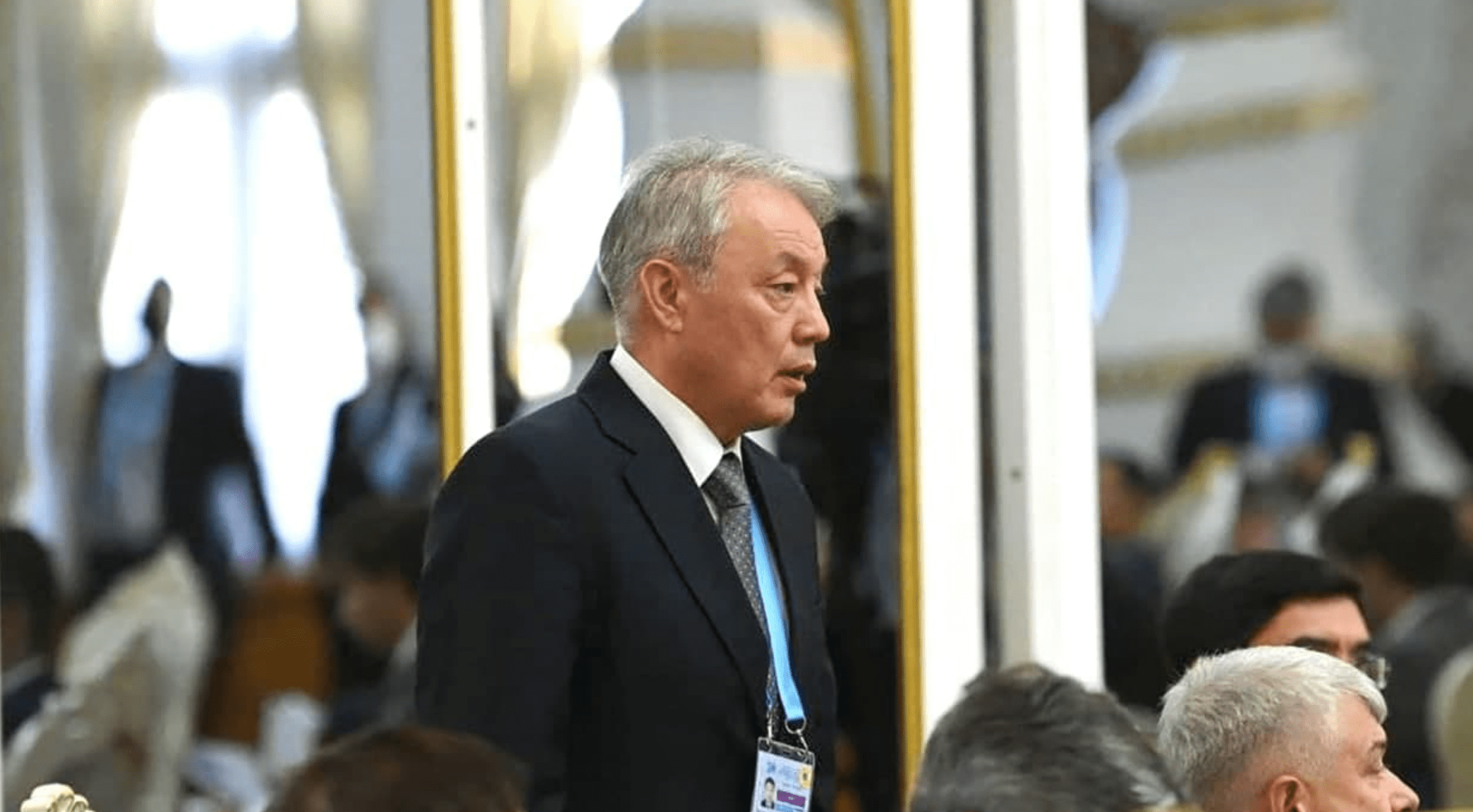ASTANA – Over the last year, the authorities of the Shanghai Cooperation Organization (SCO) states suppressed the activities of 73 clandestine cells of international terrorist organizations and prevented 69 terrorist attacks, said Ruslan Mirzayev, the director of the SCO Regional Anti-Terrorist Structure (RATS) executive committee, in an interview with The Astana Times.

Ruslan Mirzayev. Photo credit kun.uz.
The SCO RATS executive committee is now drafting a new cooperation program, which will be reported to its council by March this year. The measures reflected in the draft program are aimed at neutralizing challenges and threats posed to the security of the SCO region, both at the present stage and projected for the mid-term.
“International terrorist organizations based in the ‘areas of terrorist activity’ continue to endanger the security of the SCO countries. In addition, individuals radicalized by the propaganda of terrorist ideology on the web are also a threat,” he said.
The Secretariat in Beijing and the SCO RATS executive committee in Tashkent are the two standing bodies of the organization. Mirzayev took office in January 2022.
The information exchange, according to him, is the most efficient collaboration tool for the SCO states. “It allowed them to identify 507, detain 447, convict 54, and neutralize 182 leaders, members, and accomplices of terrorist groups,” he noted.
In addition, Mirzayev said that respective structures had blocked 24,536 information resources promoting terrorism and extremism on the web.
The improvement of the regulatory environment remains crucial for the joint counteraction to terrorism, extremism, and separatism for the members of the organization.
“The main benchmarks for the assessment of the new program’s effectiveness are the identification, prevention and suppression of terrorist, separatist, and extremist actions in the territories of the SCO countries,” said Mirzayev.
Speaking about the committee’s coordinating role, the head of the structure emphasized that its decisions “regulate practical cooperation in security.”
“The executive committee holds regular expert meetings of the competent authorities of the SCO countries. Besides, it carries out work aimed at increasing the anti-terrorist potential of the organization and conducts joint practical events,” he said, bringing an example of annual anti-terrorist exercises.
The baseline for the development of such an exercise, Mirzayev noted, is the principle of maximum approximation of its scenario to the real conditions of the operational situation in the SCO space and the tactics of terrorist actions.
“Joint border operations are also conducted annually. Their purpose is to identify and suppress transnational criminal activities associated with terrorism, such as illegal migration, smuggling of drugs, weapons, and explosives,” the expert said.
Education and training of specialists in combating terrorism, separatism, and extremism are regulated by the agreement on training personnel for anti-terrorist formations of the SCO states.
The nine members of the international alliance include China, India, Iran, Kazakhstan, Pakistan, Russia, Tajikistan, the Kyrgyz Republic, and Uzbekistan.
For 23 years of its existence, the SCO has covered more than 80% of Eurasia’s territory and nearly 40% of the world’s population.
The organization is strengthening ties with international and regional organizations, as well as with the authorities of the three observer states (Afghanistan, Belarus, Mongolia) and 14 dialogue partners (Armenia, Azerbaijan, Bahrain, Cambodia, Egypt, Kuwait, Maldives, Myanmar, Nepal, Qatar, Saudi Arabia, Sri Lanka, the United Arab Emirates, and Türkiye).
The SCO has signed memorandums and cooperation agreements, particularly with the United Nations Office of Counter-Terrorism (UNOCT), the Counter-Terrorism Committee (CTC) Executive Directorate of the United Nations Security Council (UNSC), the International Criminal Police Organization (Interpol), the Commonwealth of Independent States (CIS) Anti-Terrorist Center and the Council of the Commanders of the CIS Border Guard Troops and others.
As a founding member of the SCO, Kazakhstan has consistently demonstrated unwavering support for the organization since its establishment. Kazakhstan took over the presidency in the SCO in July last year. The authorities advocate for updating the vision of global development, strengthening the organization’s potential in new geopolitical conditions. The country’s course encompasses the issues of security and stability, economic expansion, climate action and cultural enrichment.
In November last year, Uzbekistan held the ninth SCO RATS international scientific-practical conference to discuss forecasts of terrorist and extremist risks in the SCO space and the role of civil society and scientific organizations in countering terrorism.
